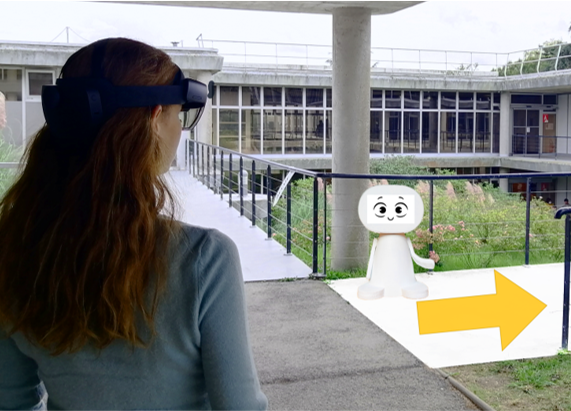Augmented reality device for providing navigation help to people with Alzheimer

My post-doctoral work focuses on the design of innovative Augmented Reality (AR) devices to allow people with Alzheimer's to continue navigating independently. Patients with Alzheimer's disease progressively lose their ability to navigate independently, outdoors and indoors. This loss of capacity has a very significant impact on their health and the health of their caregivers. Existing navigation devices, e.g., smartphone apps, are particularly unsuitable for people with Alzheimer's disease. For example, they often require to double-task, e.g., looking at the device and paying attention to the surroundings. AR offers new opportunities for the creation of devices better suited to people with Alzheimer's disease.
The aim of my post-doc is therefore to design, implement and test a new augmented reality device to allow people with Alzheimer's to move around independently outside. I started by systematically studying which digital devices had already been tested to provide guidance to people with dementia during navigation [Pillette et al., Submitted]. Based on this study, I designed and implemented several visual display on AR glasses, i.e., arrow, light path and companion (see photo). These different aids will be tested on a panel of 20 people with Alzheimer's disease during a clinical study. The experiments will begin next May in the Immermove platform at ENS Rennes on the Ker-Lann campus: a movement analysis platform allowing the acquisition of biomechanical data that will allow us to define markers of disorientation and adapt the device.